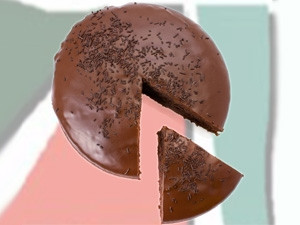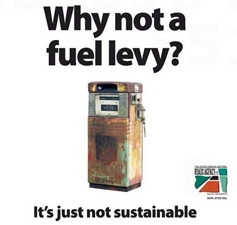
It would appear the SA National Roads Agency (Sanral) and SA's economy warden National Treasury want to have their cake and eat it by keeping the fuel levy and introducing e-tolls on top of it, but South Africans will not accept this.
This is according to Justice Project SA (JPSA) chairman Howard Dembovsky, and comes in reaction to Sanral's newspaper advertisements in national newspapers yesterday claiming a fuel levy is "just not sustainable".
Dembovsky says, while South Africans are acutely aware of the fact that planning for roads infrastructure needs to extend beyond the next decade, medium-term problems - like paying for the Gauteng Freeway Improvement Project (GFIP) - present a challenge with respect to how they are going to be funded right now.
Unrealistic argument?
Sanral's newspaper advert (pictured) reads: "It all started in the 70s when the price of fuel increased sharply. As a result, cars are getting more and more fuel-efficient each year. So while the number of vehicles in SA has risen from five million to 10 million since 1995, the revenue collected from the fuel levy hasn't kept up. The result is that the demand on road infrastructure is literally running away from us.
"With a constant drive towards fuel-efficiency and the introduction of hybrid and electric vehicles, the gap between fuel levies and the number of vehicles on our roads will keep getting wider. As cars become more fuel-efficient in future, fuel levies will produce declining revenues."
Dembovsky says the state-owned roads agency's argument is "severely flawed" in a number of respects. "Not least of all is their reliance on the argument that fuel-efficient vehicles will soon become commonplace in SA." He notes that heavy vehicles, which do the most damage to road infrastructure and consume a large proportion of fuel sold in SA, currently have no hybrid or electrical alternative in SA.

"Furthermore, the average new vehicle sales monthly in SA represent a mere 5.9% of the entire current, but growing vehicle population." Dembovsky refers to August's car sales, noting that - of the 56 112 new motor vehicles sold in the month - only three were the Toyota Prius, SA's best-known hybrid vehicle.
The average South African, he says, cannot afford to purchase a new car. "Even if cheap hybrid Indian imports - like the concept Tata hybrid at about $5 000 apiece - were to suddenly hit the South African market, it is extremely doubtful that anything even remotely representing a quarter percent of the South African car fleet would be replaced with them inside the next decade or more."
Eye-to-eye
Dembovsky says, on the one hand, if Sanral is saying the fuel levy should be scrapped, South Africans would be forced to agree with it, as this would bring prices at the pumps down by 212.5c a litre on petrol and 197.5c on diesel - "a relief [that would be] most welcome by most, if not all motorists, and then Sanral could go forward with raising bonds to fund infrastructure development and charge users to drive on the roads they build".
He says Sanral's claims that collections based on a fuel levy are unsustainable are "an outright lie at worst".
"SA consumed approximately 11.3 billion litres of petrol and 9.1 billion litres of diesel during 2009. In 2012, these figures increased to approximately 11.7 billion litres of petrol and 11.3 billion litres of diesel, representing an increase of around 3.5% in petrol sales and a whopping 24.2% increase in diesel sales over the three-year period."
Dembovsky calls on Sanral and Treasury to make a choice: either impose just a fuel levy, or just e-tolls. "They simply cannot have it both ways.
"[If they want both] we are not going to see eye to eye - ever."
Sanral, which has consistently argued that the fuel levy is not a viable means of funding the GFIP for various reasons - including changing local dynamics like an increasing social wage - had not commented by the time of publication.
Sanral spokesperson Vusi Mona has previously tagged the collection and administration of the fuel levy as wholly in the hands of National Treasury.
Share